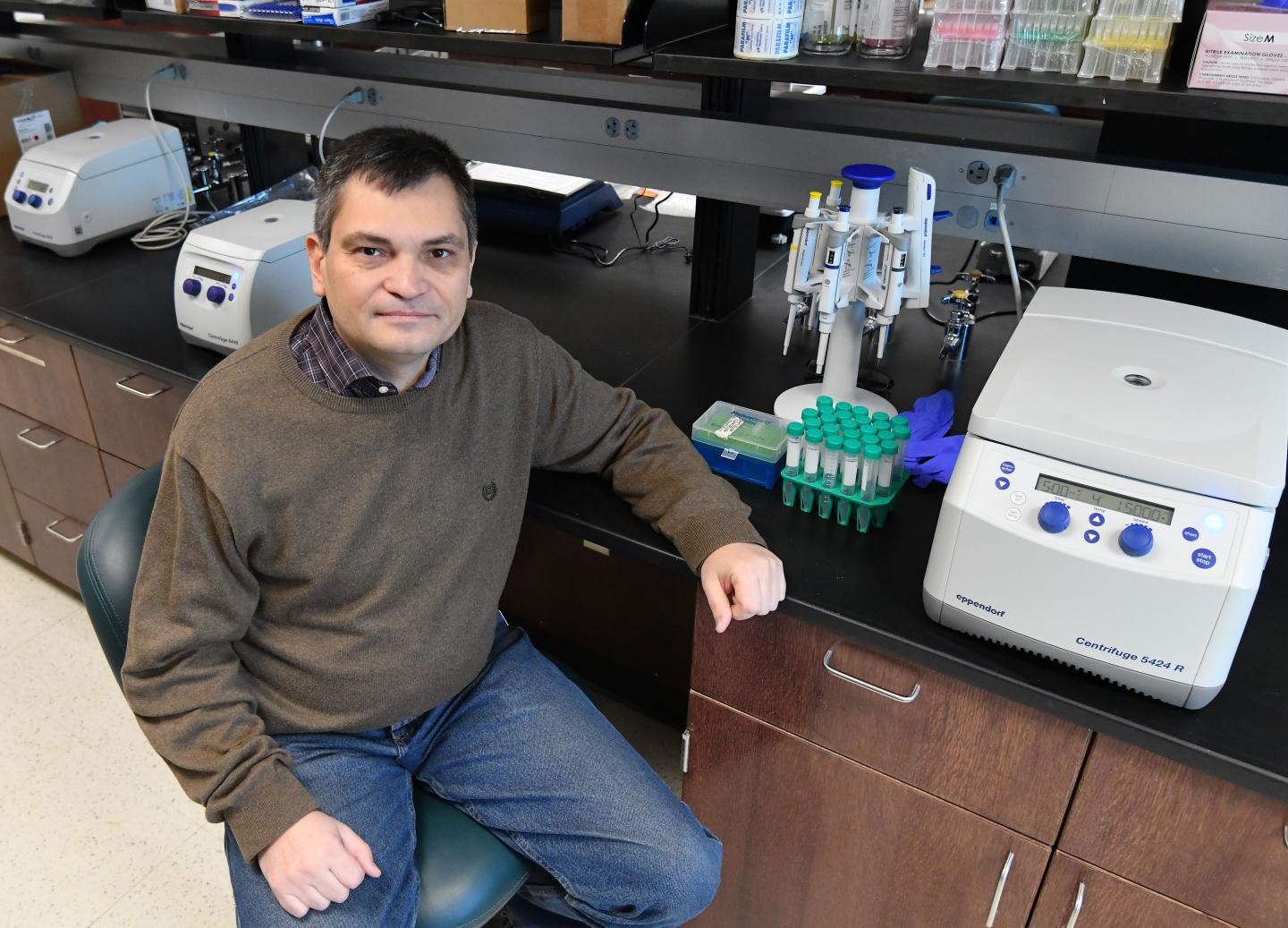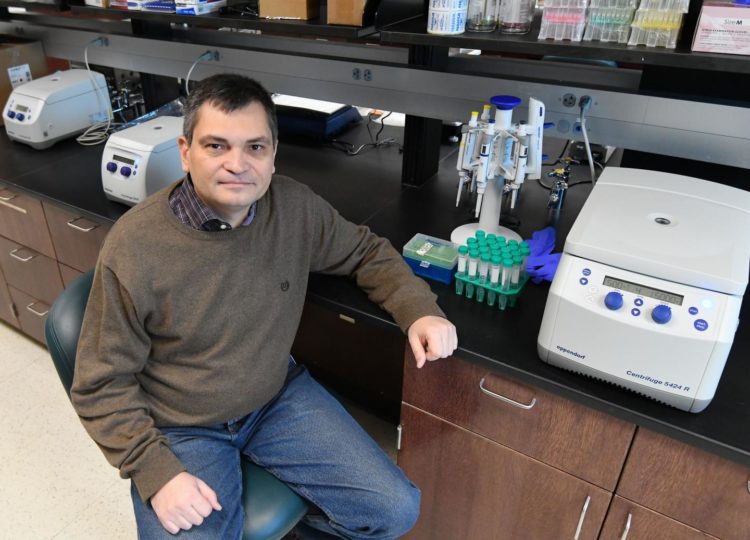
Credit: Marshall University
HUNTINGTON, W.Va. – Findings from a recent research project, conducted by a Marshall University scientist and assistant professor in the Marshall University College of Science, with researchers in Texas, was recently published in the December issue of the prestigious online journal, Nature Communications.
Dr. Eugene Shakirov is studying the connection between ribosomes and telomeres in plants. Telomeres are the physical ends of chromosomes and they shorten with age in most cells. Accelerated shortening of telomeres is linked to age-related diseases and overly long telomeres are often linked to cancer.
Telomere length varies between individuals at birth and is known to predetermine cellular lifespan, but the genes establishing telomere length variations are largely unknown. The research being done by Shakirov, along with collaborators at the University of Texas at Austin, Texas A&M University, HudsonAlpha Institute for Biology and the Kazan Federal University in Russia focused on the study of the genetic and epigenetic causes of natural telomere length variation in Arabidopsis thaliana, a small flowering plant
To find those genes that establish telomere length variations, Shakirov used the plant to look further into which genes cause the variations of the telomeres. Using genomic and genetic tests, the research team identified three genes in plants, NOP2A, RPL5A and RPL5B, as being important for telomere length control. Those same genes also play important roles in cellular processes and ribosome biogenesis and show that the identified genes perform multiple tasks in plant cells and tie together two seemingly different, but equally important, processes: the telomere length control and ribosome biology.
Shakirov says the new findings show a clear genetic link between components of ribosome biogenesis pathway and telomere length, mapping a new direction for understanding and potentially treating human diseases caused by mutations in genes that control both the ribosome and telomere.
“We need to fully understand the role of plant and human NOP2 and RPL5 genes in telomere length control and ribosome biology, so in the future we’ll run detailed molecular analysis on these genes.” Shakirov said. “Some of the lessons we learn from plant telomere proteins may provide new avenues for identification and treatment for human diseases.”
###
Shakirov’s study in Nature Communications can be found at the link below.
https:/
The research is supported by the National Institutes of Health grant RO1 GM 127402.
Media Contact
Clark Davis
[email protected]
304-696-3408
Original Source
https:/
Related Journal Article
http://dx.





